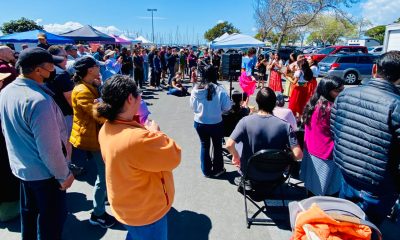Arts and Culture
Michael Morgan, Music Director and Conductor, Dies at 63
He served three decades with the Oakland Symphony and was a passionate advocate for change
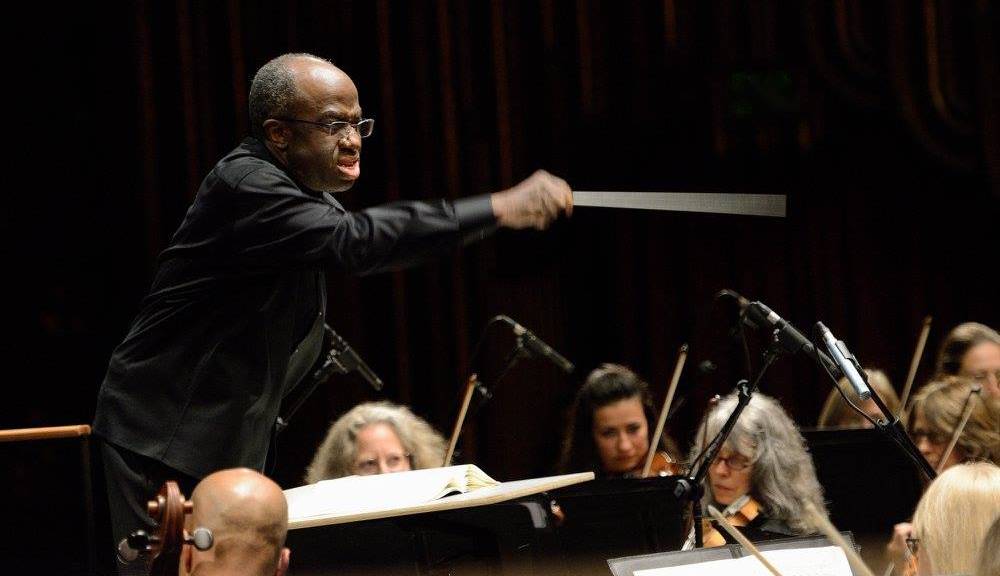
Michael Morgan was the music director and conductor with the Oakland Symphony. He died August 20, 2021, at an Oakland hospital. He was 63.
During a career that spanned 40 years, Maestro Morgan was one of the rare Black conductors to rise to prominence. He had guest appearances with leading the top orchestras of St. Louis, Los Angeles, Baltimore, New York, and San Francisco. He served as assistant conductor of the Chicago Symphony.
Maestro Morgan became music director of the Oakland East Bay Symphony in 1991. He also served as artistic director of the Oakland Youth Orchestra and was the music director of the Sacramento Philharmonic Orchestra.
He was artistic director of Festival Opera in Walnut Creek for more than 10 seasons. He taught a graduate conducting course at the San Francisco Conservatory of Music. He was music director at the Bear Valley Music Festival in California. He conducted the San Francisco Ballet for several performances. He also conducted the San Francisco Symphony.
Maestro Morgan did much more than bring classical and new music to Paramount theater audiences. He brought music to thousands of underserved children in the Oakland public schools.
“Michael Morgan was an advocate for change, both within the classical music community and also outside, in his community and beyond”, said Paul Cobb, publisher of the Post Newspaper Group.
Morgan’s “’Let Us Break Bread Together’ concert presented music from the Black Panther era that reflected back on the protest music from the 60’s and 70’s”, Cobb continued.
Morgan was always interested in providing an early education in classical music. “Talk to people of whatever color in any professional orchestra, and ask them where they started, and you’ll find that most of them started, as I did, in a public school somewhere,” he told the San Francisco Chronicle in 1998.
“And if there’s not that possibility, then of course there’s not going to be people at the other end,” he said. “It’s impossible to maintain the respect of an orchestra if they think that the only reason you’re there is that they needed a Black conductor,” Morgan said.
Maestro Morgan started the Symphony’s MUSE program as a multi-component music education and enrichment initiative to serve young people at public schools and community sites throughout Oakland.
These programs were free to participants, ensuring that each year thousands of young people have access to a variety of music education and enrichment activities, regardless of their economic situation.
“The MUSE program is a lifeline in difficult times. It’s not just a token – it’s keeping the music program afloat in Oakland. It’s the tipping point between success and failure”, said Ted Allen, former Instrumental Director, Skyline and Oakland Technical High School.
At the onset of distance learning during the Covid-19 pandemic, all engagement visits and teaching artists adapted their work with students to an on-line format in partnership with OUSD into 2020-21.
MUSE has continued to be there for the community as programs, captivating and exciting students about music, encouraging a lifelong passion for the art of sound.
Over 2,500 students are served through the symphony’s school programs hosted by MUSE. The students work with professional musician mentors from the Symphony as part of the In-School Mentor and After School programs.
Michael created the “NOTES FROM” series, designed to welcome different elements of our community into the symphony family.
The diversity of the Bay Area is well known and was reflected in the concert hall in the NOTES FROM programming.
These programs included NOTES FROM Persia, China, the Philippines, Mexico, NOTES FROM LGBT America, and the African Diaspora.
Michael DeVard Morgan was born in Washington, DC, Sept. 17, 1957.His father, Willie DeVard Morgan, was a biologist. His mother, Mabel Morgan, was a health researcher.
When Michael was 6 years old, his father bought the family a piano. Michael began to play two years later. By the age of 12, he was leading two orchestras, one founded by Michael at MacFarland Junior High School and the other at the People’s Congregational Church.
In his teens, while a student at McKinley High School, he was named conductor of the Washington D.C. Youth Orchestra. He attended the Oberlin Conservatory in Ohio, originally as a composition major.
While at Oberlin, Michael worked with conductors Seiji Ozawa and Leonard Bernstein at the Tanglewood Music Festival in Massachusetts. He accepted the position of apprentice conductor at the Buffalo Philharmonic in 1979.
The Oakland Post’s coverage of local news in Alameda County is supported by the Ethnic Media Sustainability Initiative, a program created by California Black Media and Ethnic Media Services to support community newspapers across California.
Arts and Culture
Kedrick Armstrong: New Music Director for the Oakland Symphony
The Oakland Symphony Announced Kedrick Armstrong as its Next Music Director. In addition to conducting the orchestra’s public concerts, Armstrong will also actively participate in the Oakland Symphony’s many education and community engagement programs, designed to inspire a love of music in people of all ages.
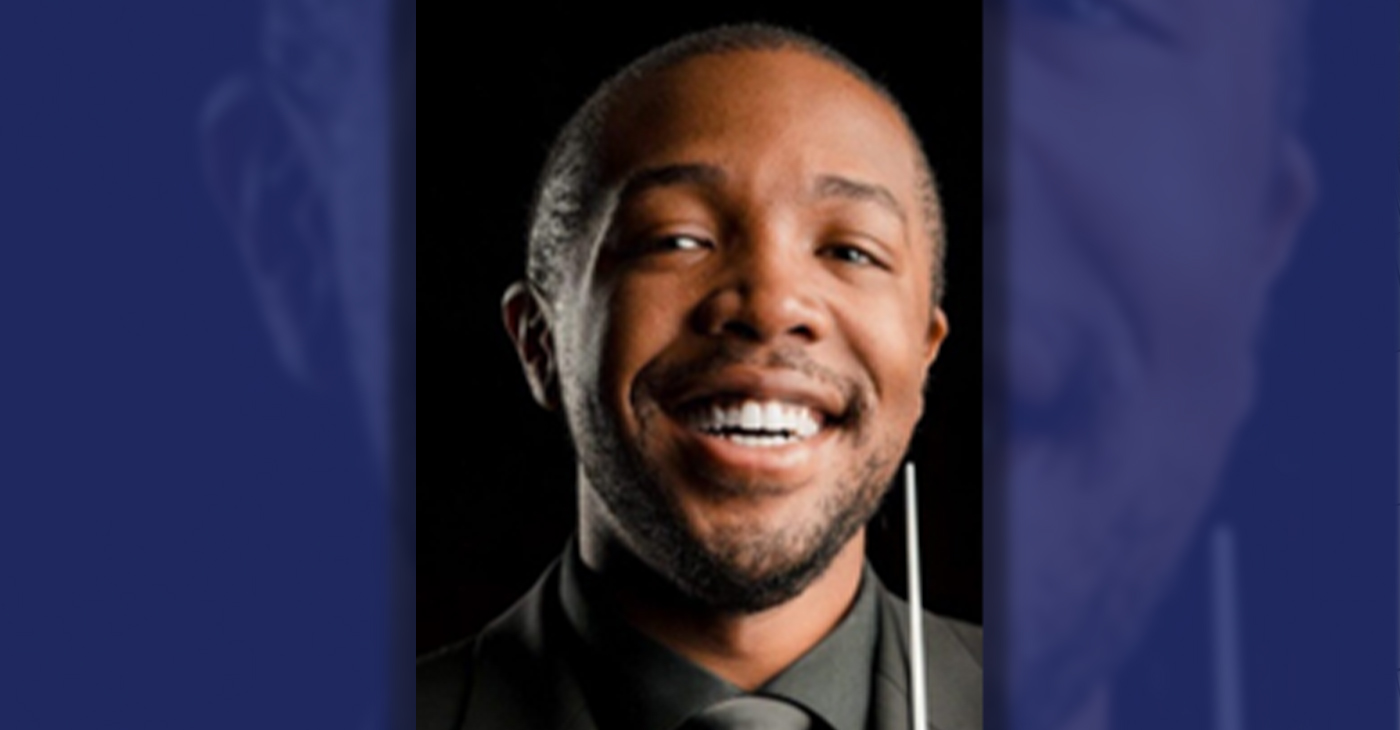
By Post Staff
The Oakland Symphony Announced Kedrick Armstrong as its Next Music Director.
In addition to conducting the orchestra’s public concerts, Armstrong will also actively participate in the Oakland Symphony’s many education and community engagement programs, designed to inspire a love of music in people of all ages.
Armstrong is the successor to previous music director and Conductor Michael Morgan, who passed away in 2021 after a 30-year tenure at the Symphony.
Armstrong will open the Oakland Symphony 2024-2025 season on October 18.
Armstrong, who is 29 and hails from Georgetown, South Carolina, is currently the creative partner and principal conductor of the Knox-Galesburg Symphony.
The Chicago Tribune has praised Armstrong for his ability to “simply let the score speak for itself.” He enjoys a wide range of repertoire, spanning early music to premiering new works, using his joy and curiosity for all music to cultivate understanding and collaboration within diverse communities.
“I am deeply honored and grateful for the opportunity to serve as the new music director of the Oakland Symphony,” Armstrong said. “As a Black conductor, I find it humbling to stand on the shoulders of both Michael Morgan and Calvin Simmons,” the most recent and the first African American music directors of the Symphony, respectively.
Armstrong led three programs at the Symphony between 2022 and early 2024, which showcased his broad knowledge of the classical repertoire and enthusiasm for spotlighting diverse voices.
On his Oakland Symphony subscription debut on Feb. 16, Armstrong led the world premiere of “Here I Stand: Paul Robeson,” an oratorio by Carlos Simon on a libretto by Dan Harder, commissioned by the Oakland Symphony.
Armstrong was selected unanimously by the Oakland Symphony’s board of directors and musicians after an extensive two-year search. “The search committee was overwhelmed by Kedrick’s scholarship and curiosity about all kinds of music, from classical and jazz to gospel and hip-hop,” said. Dr. Mieko Hatano, executive director of the Oakland Symphony. “We are thrilled to have him join us at the Oakland Symphony.”
Arts and Culture
Faces Around the Bay Dr. Carl Blake, Pianist
Born in Liberty, Missouri, Carl Blake, a virtuoso and respected pianist, made his most recent migration to the East Bay in 1999. One might have seen him performing recently at Noontime Concerts in San Francisco, or at the Piedmont Center for the Arts in Oakland. He is Director of Music at The Church for the Fellowship of All Peoples in San Francisco. He was also co-organizer and collaborative pianist at Herbst Theater for The Majesty of the Spirituals concert in 2022 and has held several church positions in the Bay Area.
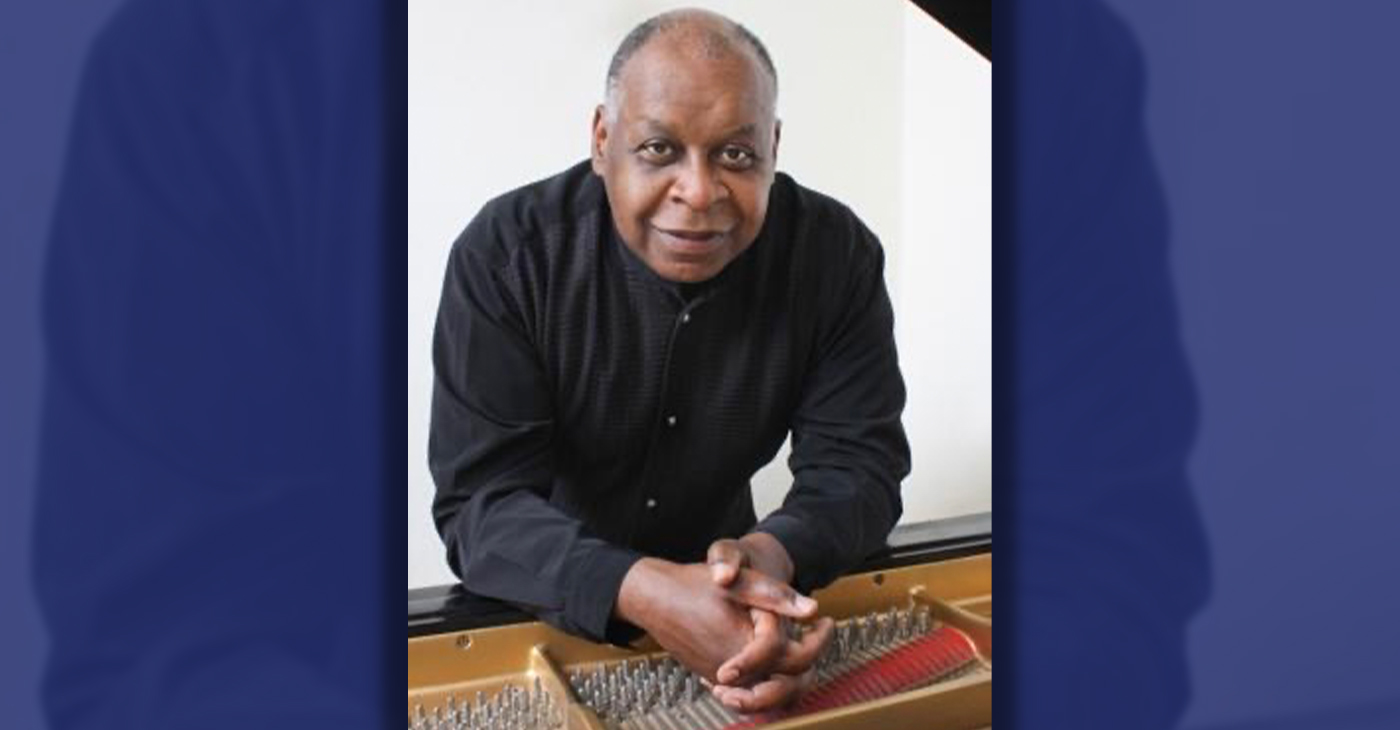
By Barbara Fluhrer
Born in Liberty, Missouri, Carl Blake, a virtuoso and respected pianist, made his most recent migration to the East Bay in 1999.
One might have seen him performing recently at Noontime Concerts in San Francisco, or at the Piedmont Center for the Arts in Oakland. He is Director of Music at The Church for the Fellowship of All Peoples in San Francisco. He was also co-organizer and collaborative pianist at Herbst Theater for The Majesty of the Spirituals concert in 2022 and has held several church positions in the Bay Area.
Blake obtained a Bachelor of Music from Boston University and continued post-baccalaureate studies in Jamaica before earning a Master of Arts in Music at San Jose State University. He was the recipient of two Fulbright residencies in Honduras and completed a third residency at the University of St. Petersburg in Russia. He has a Doctor of Musical Arts from Cornell University.
At age 19, Blake, then an undergraduate piano major at Boston University, was “discovered” by Impresario Dr. W. Hazaiah Williams, who is the Founder and Director of Today’s Artists/Four Seasons Arts.
Williams honored Blake by awarding him the first Marian Anderson Young Artist Award. Anderson personally presented the award at the Masonic Auditorium in S.F. Subsequently, Blake was presented by Dr. Williams in his San Francisco debut at The Herbst Theatre. Williams subsidized a year of study abroad for Blake at the Paris Conservatory of Music. Additionally, Williams sponsored Blake’s New York Weill Hall debut, where he has performed twice since. Blake performed several times at the Yachats Music Festival in Oregon.
Blake continues to perform nationally and abroad. His hobbies are reading, baking and travel. He says, “I’m still pumping ivories, as Belgian pianist Jeanne Stark described the disciplined practice of concert piano.”
Arts and Culture
Oakland Jazz Great Offers Master Class as City Declares “John Handy Day”
World-renowned jazz master saxophonist John Handy, a McClymond’s High School graduate, was presented with a Mayor of Oakland Proclamation declaring Feb. 12, as John Handy Day in the city. Handy is most notably known as the featured saxophonist for Charles Mingus on “Goodbye Pork Pie Hat” from the album “Mingus Ah Um” (1959) and on “Hard Work” from his own album “Hard Work” (1976).
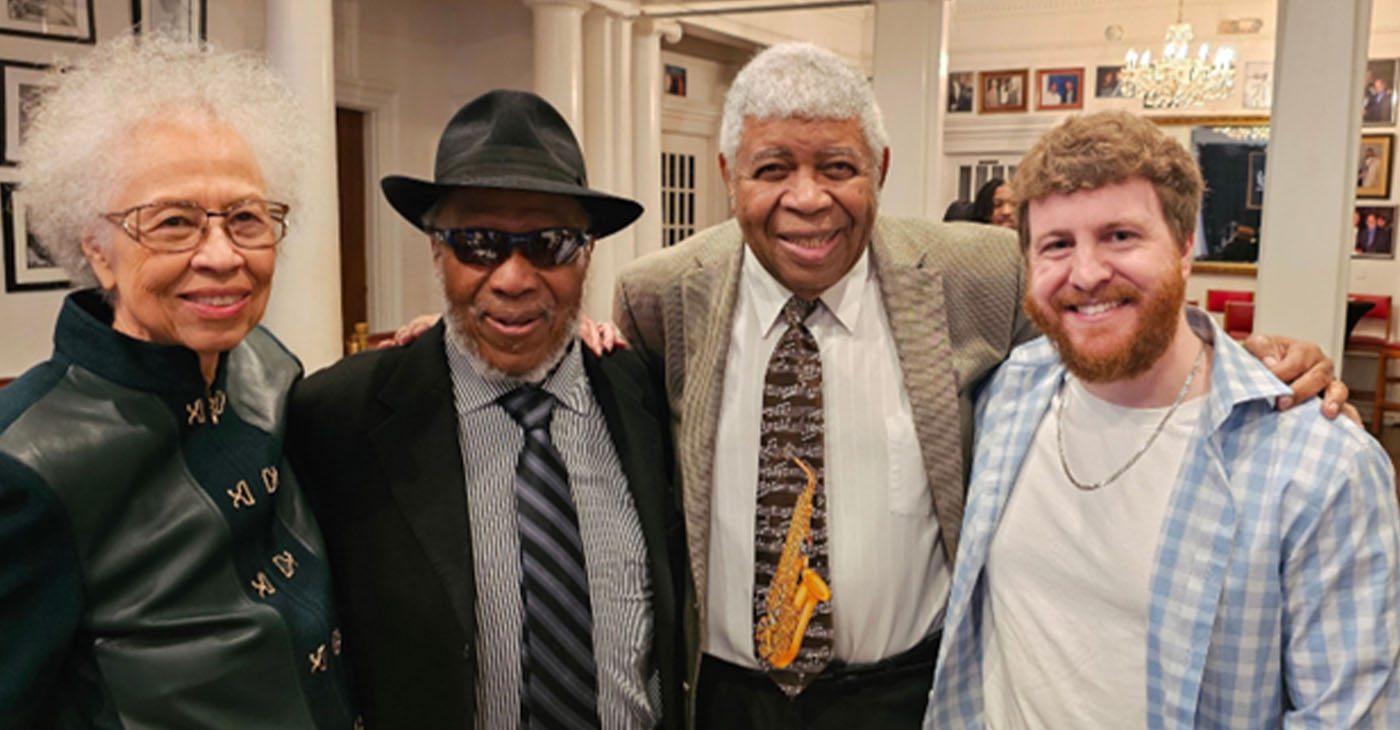
By Conway Jones
World-renowned jazz master saxophonist John Handy, a McClymond’s High School graduate, was presented with a Mayor of Oakland Proclamation declaring Feb. 12, as John Handy Day in the city.
Handy is most notably known as the featured saxophonist for Charles Mingus on “Goodbye Pork Pie Hat” from the album “Mingus Ah Um” (1959) and on “Hard Work” from his own album “Hard Work” (1976).
“John Handy is a jazz icon and an inspiration to musicians everywhere,” said Ayo Brame, a 16-year-old Oakland tenor saxophone player who is enrolled at the Oakland School for the Arts.
In celebration of this day, the reception in downtown Oakland at Geoffrey’s Inner Circle was a gathering of artists, young and old, coming together in his honor and celebrating his 91st birthday.
Handy presented a Saxophone Colossus free masterclass for musicians. This class afforded a rare opportunity to learn about the saxophone from an aficionado. The class was free and open to all – saxophonists, vocalists, aficionados, students, and casual listeners.
“As a longtime friend for over 60 years, and fellow musician who has had numerous opportunities to share the stage with John, it has always been a pleasure performing with him and hearing his creative interpretations of the music and his gift of ease inspiring the next generation of jazz musicians,” said Roger Glenn, a multi-instrumentalist.
-

 Activism4 weeks ago
Activism4 weeks agoOakland Post: Week of March 27 – April 2, 2024
-

 #NNPA BlackPress4 weeks ago
#NNPA BlackPress4 weeks agoCOMMENTARY: D.C. Crime Bill Fails to Address Root Causes of Violence and Incarceration
-

 #NNPA BlackPress4 weeks ago
#NNPA BlackPress4 weeks agoFrom Raids to Revelations: The Dark Turn in Sean ‘Diddy’ Combs’ Saga
-

 #NNPA BlackPress4 weeks ago
#NNPA BlackPress4 weeks agoCOMMENTARY: Lady Day and The Lights!
-

 #NNPA BlackPress4 weeks ago
#NNPA BlackPress4 weeks agoMayor, City Council President React to May 31 Closing of Birmingham-Southern College
-

 #NNPA BlackPress4 weeks ago
#NNPA BlackPress4 weeks agoBaltimore Key Bridge Catastrophe: A City’s Heartbreak and a Nation’s Alarm
-

 #NNPA BlackPress4 weeks ago
#NNPA BlackPress4 weeks agoBaltimore’s Key Bridge Struck by Ship, Collapses into Water
-

 #NNPA BlackPress4 weeks ago
#NNPA BlackPress4 weeks agoBeloved Actor and Activist Louis Cameron Gossett Jr. Dies at 87









